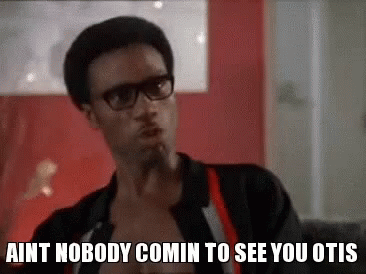TheGodling
Los Ingobernables de Sala de Cine
I thought this was actually kinda disappointing.
Delroy gave a masterful performance, especially the soliloquy. I also liked how the historical photos/asides were interwoven into the narrative. But apart from that, it seems undercooked and rushed. I think the sappy score (not the soundtrack, loved the Marvin) made it seem like a fake movie at times.
The whole subplot with the white landmine people and the love interest was really stupid.
The whole subplot with Jean Reno turning on them for the gold was weak.
The whole subplot with the Vietnamese daughter was really thrown together and barely given any care.
Chadwick was really good, but he was in the film for like 4 minutes.
While I appreciated they gave some agency to the Vietnamese perspective with the Calley reference, I don't think they really grappled with the War sufficiently.
I think Miracle at St. Anna was a far superior film.
The French chick was used to highlight how generations deal with historic guilt, and to be the opposite of Reno's character. Reno is a Frenchman who still holds business in 'Nam like a colonist, the white chick is doing what should've been the government's job and clearing mines and bombs left behind and are still hurting locals. 50 years later the Vietnamese are still risking being killed by American and French weapons.
The subplot with the Vietnamese daughter was needed for Otis' background (and why we should care he survives), also to be a counterpoint to Paul being a bad father. Paul hated his son since birth while Otis spent most of his life not knowing he had a daughter but instantly had nothing but fatherly love for her. Of course the introduction of the daughter is also used by Spike to talk about racial discrimination of black people in Asia and white soldiers strengthening it (the ones who taught the Vietnamese the N-word).
Stormin' Norman (Chadwick) was this film's colonel Kurtz (Brando's character from Apocalypse Now, which Spike gives thanks to in the end credits). In Apocalypse Now soldiers are sent into the Vietnamese jungle to kill a Colonel who has gone fully insane. Norman is the literal black counterpart to the white madman, a US soldier who was the moral compass that never wavered and actually kept his brothers sane during the war. His presence in the film is short but the weight of his importance is felt.
And I don't think Spike really had a lot to say about the war itself, it was all about how many people are still haunted by the war, and not always in the most commonly acknowledged sense (PTSD).
The subplot with the Vietnamese daughter was needed for Otis' background (and why we should care he survives), also to be a counterpoint to Paul being a bad father. Paul hated his son since birth while Otis spent most of his life not knowing he had a daughter but instantly had nothing but fatherly love for her. Of course the introduction of the daughter is also used by Spike to talk about racial discrimination of black people in Asia and white soldiers strengthening it (the ones who taught the Vietnamese the N-word).
Stormin' Norman (Chadwick) was this film's colonel Kurtz (Brando's character from Apocalypse Now, which Spike gives thanks to in the end credits). In Apocalypse Now soldiers are sent into the Vietnamese jungle to kill a Colonel who has gone fully insane. Norman is the literal black counterpart to the white madman, a US soldier who was the moral compass that never wavered and actually kept his brothers sane during the war. His presence in the film is short but the weight of his importance is felt.
And I don't think Spike really had a lot to say about the war itself, it was all about how many people are still haunted by the war, and not always in the most commonly acknowledged sense (PTSD).
Really good movie that gets weirdly campy and corny at times. The musical score was distracting.
Thought the musical score was deliberately composed the sound like a traditional war movie score (the horns and strings) to emphasize that they were still fighting a war (if not against their own demons, then white supremacy). So it's sounding off because mentally we connect this kind of musical score to the heroism and struggle of war, not the suffering following the war.
I do wish they grieved Eddie death a bit longer and the fact they left him out there kinda goes against part of the reason they searched for the other blood.
Not really. They specifically wanted to return Norman so he could get a hero's treatment and burial and not be forgotten in history.
The other deaths (not just Eddie but also Paul and Melvin) were people who lived long lives but reached the end of the road due to their decision to also take the gold (note that each death, even Eddie's, is directly caused by the gold, not the retrieval of Norman's body).
The other deaths (not just Eddie but also Paul and Melvin) were people who lived long lives but reached the end of the road due to their decision to also take the gold (note that each death, even Eddie's, is directly caused by the gold, not the retrieval of Norman's body).












